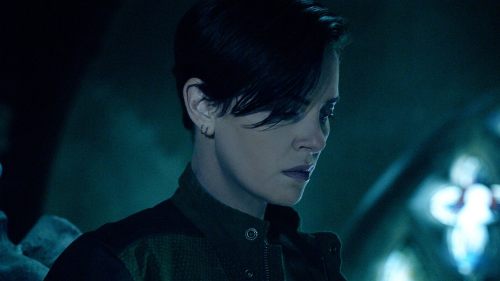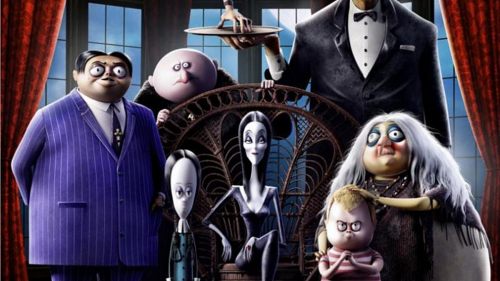TULLY Review: Motherhood And Missed Opportunity
I am not a mother. I have no designs on parenthood, and I don't imagine I ever will. So in many ways, Tully is not a film designed to speak to me. Diablo Cody's screenplay is steeped in shorthand reference to the kinds of exhaustion and frustration that mothers in heterosexual relationships face when managing their young children and their pregnancies, not limited just to the physical strains of that life but also the emotional and psychological. Under Jason Reitman's direction, these circumstances are seen as empathetic and relatable to just about any audience member, but it's clear that this is written to nudge all the mothers in the audience and say, "Hey, remember how this felt? Sucked, didn't it?" And you know what? That's great. There's a lot to like about Tully based purely on its perspective and the performance around which it revolves. But there's just one thing that's going to turn off a lot of this film's prospective audience, and it's a narrative decision that is somewhat baffling to watch play out.
But I'm getting ahead of myself. Charlize Theron stars as Marlo, starting the film in the final days of her pregnancy before giving birth to her third child. While her husband Drew (Ron Livingston) works his busy job, Marlo uses her maternity leave to manage the lives of her eight-year-old daughter and kindergartener son, the latter of which suffers from an undiagnosed behavioral disorder that Marlo struggles to navigate. When Marlo's brother Craig (Mark Duplass) realizes that Marlo is running herself ragged, he offers to use his relative wealth to buy her a night nanny, someone to assist her with the baby so that she can get some sleep. After some reticence, Marlo finally calls in Tully (Mackenzie Davis), whose calm, cheerful demeanor and helpful nature start to turn Marlo's life around.
Theron is the main reason why anyone should see Tully, as her performance is a testament to just how versatile and enthralling a performer she is. Marlo is a character defined by her role as a mother, which is exhausting for her in terms of time and labor as well as on her psyche, though she remembers a time when she used to be carefree and able to function as a person independent of her offspring. Her love for her kids and her husband is unquestioned, but there is a noticeable lack of self-care in Marlo's life that pushes for the necessity of Tully's presence. Theron carries that exhaustion and strain with remarkable nuance, letting you feel right along with her the weight of the world and its expectations on her, and then feeling that weight lift as Tully's influence strips away her perpetual dread. This is a film about the importance of mothers finding appropriate supports for themselves in the raising of their children, but at its center is a fantastic examination of just what the strains of motherhood as a sole identity will do to a person, all delivered with the usual wit and charm Diablo Cody provides to her dialogue.
It's all the more unfortunate, then, that Tully's third act takes such a hard nosedive. I'm not going to spoil the big twist here, but it's derivative of one of the most famous twists in cinema and jeopardizes the integrity of all that came before it. If you are anything like me, you'll start to notice certain particularities in the plotting and dialogue that start to raise your suspicions, then come to realize where this might be going and ultimately be disappointed that it takes that exact turn. It's a thematically consistent plot turn, so it doesn't break the film through its presence, but it does leave a sour taste in one's mouth as a bizarre reference to another, completely disparate work, and it's sure to disappoint many a mom who wanted this film to remain grounded in reality. It's also a twist that raises some troubling implications about Marlo's character that the film just wants you to ignore, which again doesn't completely discount all that came before, but it does close the film out on an unintentionally bitter note.
Taken as a whole, there's more good than bad to Tully. Reitman's direction, Cody's dialogue, and Theron's performance are all top notch, conveying the exhaustion and strain of motherhood in a way that few films prior have effectively captured. But Cody's plotting here goes off the deep end only to faceplant in the kiddie pool, departing from all the good will Tully builds up to offer an imitation storyline that feels like it belongs in a different film entirely. See Tully for the performance that Theron clearly poured her entire being into; just be prepared to brace yourself for the inevitable third act shenanigans. They're a doozy.



